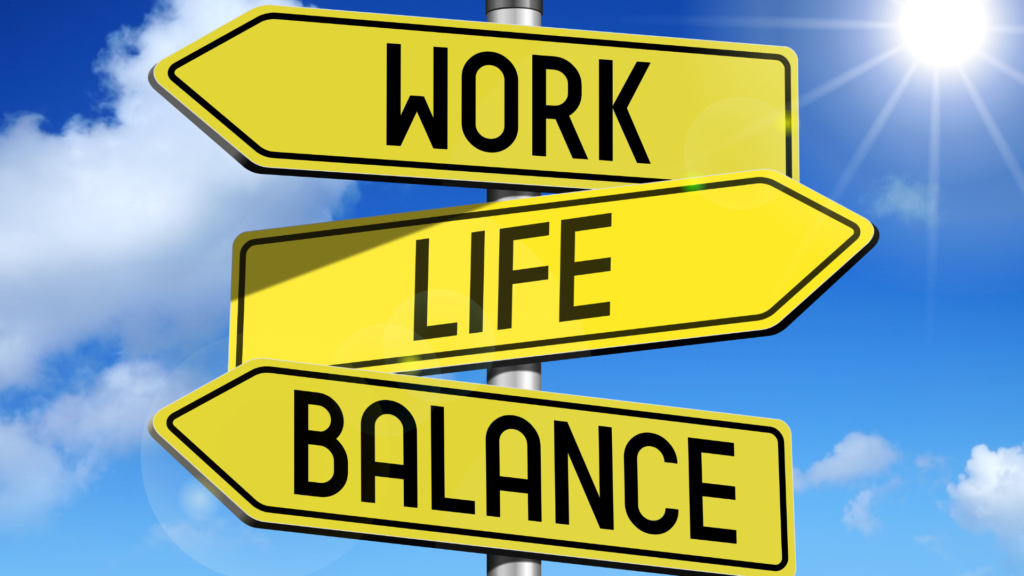Work-life balance refers to the ability to maintain an equitable and harmonious division of time and energy between work and personal life. It’s a concept that has become increasingly important in today’s fast-paced, always-connected world, where the lines between work and home are often blurred. Achieving work-life balance can be a challenge, but it’s crucial for career satisfaction and overall well-being.
The Importance of Work-Life Balance
Work-life balance is important for several reasons. First and foremost, it helps to reduce stress and prevent burnout. When people feel like they’re constantly juggling work and personal responsibilities, it can lead to increased stress levels and decreased productivity. This can result in physical and mental health problems, such as fatigue, headaches, and depression.
In addition, work-life balance is crucial for job satisfaction and career success. When people are able to maintain a healthy balance between work and personal life, they’re more likely to be engaged and motivated in their work. They may also be more likely to experience job satisfaction and career advancement, as they’re not feeling overwhelmed or burnt out.
Improved Productivity
Another benefit of work-life balance is that it can help to improve your productivity. When you are feeling stressed, exhausted, and burnt out, it can be difficult to focus and be productive. However, when you have a healthy balance between work and life, you are likely to be more focused and energetic, which can improve your performance at work. Additionally, when you have time outside of work to recharge, you are more likely to return to work feeling refreshed and ready to tackle new challenges.
Set Boundaries and Prioritize Your Time
In order to achieve work-life balance, it is important to set boundaries and prioritize your time. This means prioritizing the activities and responsibilities that are most important to you and saying “no” to those that are not. It may also mean setting limits on the amount of time you spend working and making sure to carve out time for rest, relaxation, and personal pursuits. Additionally, it is important to be mindful of the demands of work and to make changes if necessary, in order to achieve a healthy balance.
Be Proactive
Another key aspect of achieving work-life balance is to be proactive about taking care of your health and well-being. This means engaging in physical activity, eating a healthy diet, getting enough sleep, and taking steps to reduce stress. By taking care of your health, you are more likely to be able to maintain your energy and focus, even in the face of challenging work demands.
Strategies for Achieving Work-Life Balance
Achieving work-life balance can be a challenge, but there are several strategies that can help.
First, it’s important to set boundaries between work and personal life. This means being intentional about when you’re working and when you’re not, and making sure that your work does not spill over into your personal time. For example, you might set a specific time each day when you stop checking work emails, or limit the amount of time you spend working on weekends.
Second, it’s important to prioritize self-care. This means taking the time to engage in activities that promote physical and mental well-being, such as exercise, meditation, or hobbies. When people prioritize self-care, they’re better able to manage stress and maintain their overall well-being.
Third, it’s important to communicate with your employer about your work-life balance needs. This might involve negotiating flexible work arrangements, such as working from home or adjusting your schedule. Employers who are supportive of work-life balance are more likely to retain employees and experience increased productivity.
Finally, it’s important to be intentional about your time. This means making sure that you’re using your time in ways that are aligned with your values and priorities. For example, if you value spending time with family, you might make sure that you schedule time each week for family activities.
Work-life balance is an important aspect of career satisfaction and overall well-being. By setting boundaries, prioritizing self-care, communicating with your employer, and being intentional about your time, you can achieve a healthy balance between work and personal life. With the right balance, you’ll be able to enjoy greater job satisfaction, increased productivity, and improved relationships with others.










